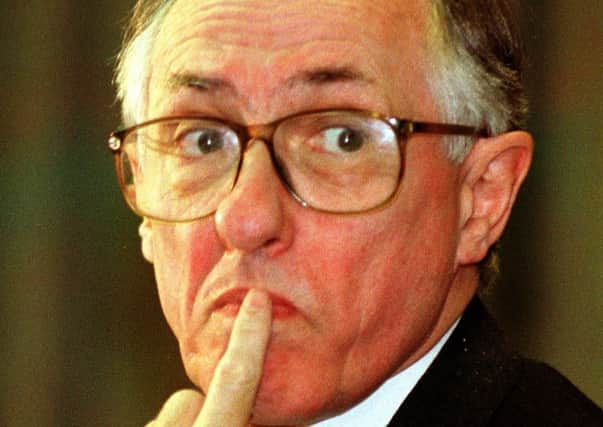So, who else wants to be Labour leader? – Bill Jamieson


Since the morning of 13 December the list of runners and riders has swollen from two to four, then five, then six, now eight – and still counting. Any more and the Guardian will soon need a special daily supplement, complete with index.
Little of this resonates in Scotland. The party north of the Border has been reduced to just one MP. But there is still time for Scotsman readers who have not yet stepped forward to make their move soon: after all, this was the party that proudly boasted a great line of Scots figures – John Smith, Gordon Brown, Donald Dewar and many others.
Advertisement
Hide AdAdvertisement
Hide AdBut the absence of a strong Scottish contender is not the only item glaringly absent from this fast-developing bunfight. There is as yet a notable absence of fresh ideas. What the party desperately needs for a revival is an iconoclast who can break the grip of lookalike, me-too candidates and inspire it to think beyond the dated slogans and failed policies that led it to ruin.
All we are seeing so far are all-too-familiar re-treads and a group of Left-wing candidates whose ideas are almost impossible to tell apart. New ideas? Fresh thinking? Where?
Here is the field – so far: Rebecca Long Bailey, a protégé of John McDonnell and an avowed Corbyn supporter emerged as early front runner and has all but declared as a candidate, on a joint ticket with her flatmate and fellow Corbynite Angela Rayner, the shadow education secretary, mooted to be in line for the deputy leadership should Long Bailey succeed. However, latest reports suggest she might not endorse Ms Long Bailey but could run for the leadership herself.
Ian Lavery, the Labour Party chairman, a defender of Mr Corbyn’s leadership and who was campaign coordinator for the election, says he is “seriously considering” his options.
But hang on a minute. Labour sources say he is not really a full-on candidate at all but may be entering as a stalking horse on a ticket to the Left of Ms Long Bailey to boost her chances of emerging as a “centrist” candidate. But Chesterfield Labour MP Toby Perkins has warned fellow MPs not to be fooled. His mooted candidacy is “purely an attempt to convince us that [Ms Long Bailey] is not a far-Left choice.”
Who could possibly be fooled?
Matters are further complicated by the emergence of Leftist Clive Lewis, who has confirmed he will stand for the leadership. A former Treasury minister, he is pitching for votes from activists who supported Jeremy Corbyn but were frustrated that he did not argue unequivocally for remaining in the EU.
These three avowedly Left-wing candidates will be battling mightily against Sir Keir Starmer, the shadow Brexit secretary, who is a strong contender. He is a lawyer who is now at pains to stress his working-class credentials.
Not to be overlooked are Jess Phillips, the Wigan MP, and prominent backbencher Lisa Nandy, and Emily Thornberry, the shadow foreign secretary. They have all declared they will run. Ms Thornberry’s relations with the leader are cool: she warned before the poll that the leader’s neutral stance on Brexit would not go down well, and she has called on his hard-Left aides Seumas Milne and Karie Murphy to join the leader in paying the price for the election debacle.
Advertisement
Hide AdAdvertisement
Hide AdAnd let’s not forget Dan Jarvis, the Labour MP and Sheffield city region mayor who has left the door open to join the race. An ex-Army officer, he is widely regarded – insofar as clear policies can be discerned – as a candidate of the Right (or non- Left).
So, all told, there are eight runners so far (or eight and a half including Angela Rayner), of whom four have declared themselves as definite contenders, with four saying they are “mulling”. A timetable will be set next week, with a result by the end of March.
The missing element here is new ideas - or at the least, an iconoclast that could catalyse fresh thinking. Back in the late 1970s when the Conservatives were struggling in opposition, the party was convulsed by a series of speeches by Keith Joseph – very controversial then, as still now – but the case for monetarism, as opposed to the constant grind of failed incomes policies, spurred the break with the failed era of Edward Heath and brought new ideas such as enterprise zones to the fore.
It’s fresh, galvanising ideas that Labour needs, not ever more leader contenders, with little so far to distinguish them.